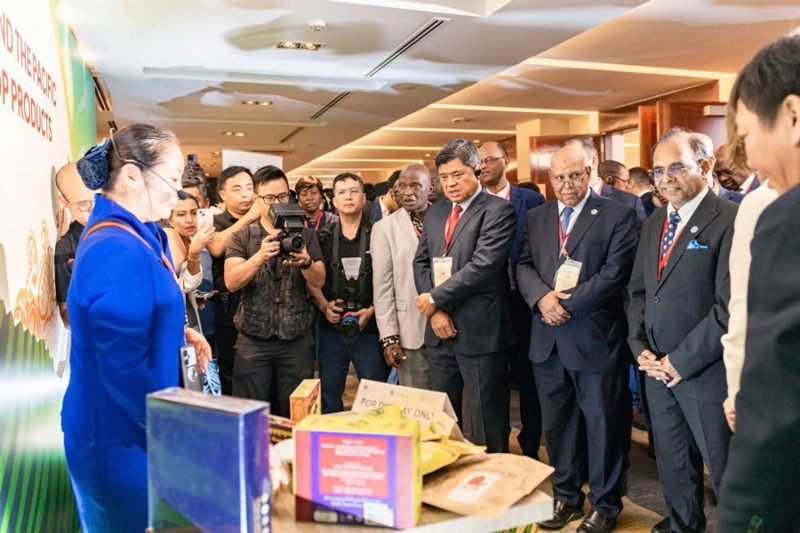Vietnam, in partnership with the Food and Agriculture Organization of the United Nations (FAO), hosted a high-level inter-regional forum on the "One Commune One Product" (OCOP) model on July 15.
The event brought together agriculture ministers and senior officials from 17 nations across Asia and Africa, including Bhutan, Nepal, Tunisia, Zambia, Zimbabwe, Ghana, Ethiopia, Cameroon, Mozambique, Sierra Leone, Côte d'Ivoire, Gabon, the Democratic Republic of the Congo, Malawi, Lesotho, South Sudan, and host country Vietnam.
As the first large-scale international forum on OCOP held among developing nations, the gathering highlights Vietnam's commitment to sharing its successful experiences and fostering a global platform for cooperation in rural and agricultural development.
In his opening remarks, Mr. Tran Thanh Nam, Vietnam's Deputy Minister of Agriculture and Environment, emphasized the forum's significance, saying that "This event helps align global and regional efforts to implement the OCOP program, aiming to achieve the FAO's 'Four Betters' initiative: Better Production, Better Nutrition, a Better Environment, and a Better Life."
Launched by the Vietnamese Government in 2018, the OCOP program has been rolled out nationwide to drive rural economic growth by leveraging local strengths and unique regional advantages. More than just a product brand, OCOP is a comprehensive development model that integrates the government, private enterprises, cooperatives, and farmers. It focuses on capacity building, quality control, brand development, and market access for rural products.
"As of June 2025, Vietnam has certified 16,855 OCOP products at three stars or higher," Mr. Nguyen Do Anh Tuan, Director General of the Department of International Cooperation at the Ministry of Agriculture and Environment, stated, adding that over 60% of OCOP-participating entities have reported an average annual revenue growth of 18%.
Ms. Beth Bechdol, Deputy Director-General of the FAO, described the initiative not only as a driver for local economic development but also as a cornerstone for sustainable agricultural growth. She highlighted that diversifying products, building resilience, and promoting knowledge sharing among nations are key for Asia and Africa to "act together and move forward together".
"Vietnam is emerging as a 'knowledge hub' for rural development based on indigenous values and global connectivity," Ms. Bechdol remarked. "Vietnam's practical success in brand building, quality control, and developing unique rural products is a testament to its ability to transform small-scale production into sustainable value chains."
Through its "One Country One Priority Product" initiative—the global counterpart to OCOP—the FAO is currently supporting the development of 56 special agricultural products worldwide. The initiative aims to harness local cultural values, improve livelihoods for rural populations, and promote a transparent, green, and sustainable food production ecosystem.
At the forum, Deputy Minister Tran Thanh Nam proposed establishing a network for South-South countries to share policies, technologies, and market information. He also recommended piloting a Public-Private-Community Partnership model to mobilize financial, technical, and indigenous knowledge for sustainable rural development. Notably, Vietnam emphasized the importance of empowering vulnerable groups—such as women, the elderly, people with disabilities, and ethnic minority communities—through the OCOP program.









 Google translate
Google translate